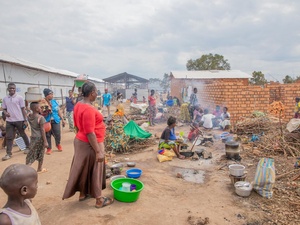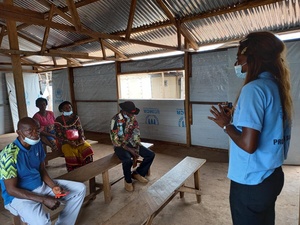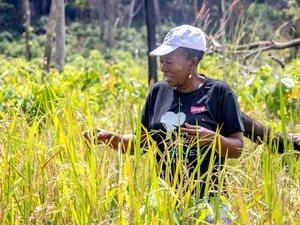Angola: Voluntary repatriations reach 35,000
Angola: Voluntary repatriations reach 35,000
UNHCR's voluntary repatriation programme for Angolan refugees has reached the 35,000 mark since it got under way in June. Around 15,000 Angolans have returned from Zambia, mainly from Meheba camp near the border with Angola. On Saturday, the first convoy carrying 505 Angolans set out from Mayukwayukwa camp in western Zambia for the four-day trip over 2,000 km to Cazombo in the Angolan frontier province of Moxico. It is the second camp in Zambia, where UNHCR is organising return convoys. In addition, some 17,000 Angolan refugees have gone home from camps in the Democratic Republic of the Congo (DRC) and 3,000 from Namibia. UNHCR plans to help return 220,000 Angolan refugees under a phased programme over two years.
Hundreds of thousands of uprooted Angolans have returned home since a peace agreement took hold early this year, ending three decades of civil strife in Angola. But because most areas in Angola do not have the basic infrastructure to make returns meaningful, UNHCR has decided to organise returns to areas with the capacity to receive the refugees in one of the world's most heavily-mined countries.
There are also some 13,000 refugees in Angola, mainly from the DRC. Last May, we moved 300 of them to a small settlement in Sungui in Bengo province, 72 km north of Luanda. These refugees arrived in 1977 during the Katanga war. We have been providing them integration projects to enable them to become self sufficient in their farms in Sungui. But lately there have been reported incidents of harassment and robbery by armed men entering the settlement at night. There were also reports of Angolans claiming agricultural land allocated to the refugees. Equipment from a container of our NGO partner has been stolen. We have raised our concerns about these incidents with the Angolan authorities in Luanda.









